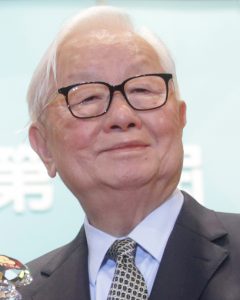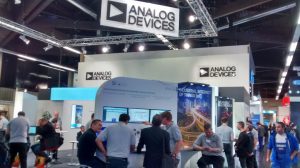Morris Chang: The Father of Taiwan’s Chip Industry
China is known as the major manufacturer of electronics all over the globe. The reason is simple, it is blessed with leaders, who have worked hard to be ahead of everyone else and took the sole responsibility, to make their company as well as China, the leader of electronics manufacturers. Taiwan Semiconductor Manufacturing Company (TSMC) is the world’s first and biggest silicon foundry. The company became what it is today only because of the leader who served it for 30 years – Morris Chang.
Early Life
Born on 10th July 1931, in Ningbo, Chekiang, China, Morris Chang is the founder, former chairman and CEO of Taiwan Semiconductor Manufacturing Company. His father was an official in the Yin county government. Chang’s life’s ambition was to become a novelist or a journalist. But his father persuaded him to take up something else.
In 1948, Chang moved to Hong Kong at the age of 17, as it was the peak time of the Chinese Civil War. Just the next year the People’s Republic of China was established. In 1949, Chang moved to the United States to study at Harvard University. Later on, he transferred to Massachusetts Institute of Technology, where he completed his bachelors and master’s degree in mechanical engineering.
Career
In 1955, just after graduating, Chang landed his first job in the industry in Sylvania Semiconductor in the United States. After working for three years, in Sylvania Semiconductor he moved to Texas Instruments, in 1958. Chang spent the next 25 years of his life in this company. While working at TI, he learned everything about semiconductors and made advancements in it. He referred to these years as ‘youth of semiconductors’.

After his continuous hard work, Chang received a promotion in TI. He became the manager of the engineering section in 1961, i.e. just after three years of his joining the job at TI. Looking at his potential, Texas Instruments decided to invest a bit more in Chang and gave him the opportunity to obtain his PhD. He went to Stanford University and received his PhD in electrical engineering in 1964. He finally rose up to the rank of Vice President and took the responsibility of TI’s worldwide semiconductor business. During his time at TI, Chang worked on the four-transistor project, for which, IBM was handling the manufacturing unit. He also brought forward the idea of pricing semiconductors at low costs to gain larger profits in the long term.
Chang left Texas Instruments in 1983, and later, became the president and chief operating officer of General Instrument Corporation, from 1984-85. He left GIC and got a proposal from the government of the Republic of China for the post of chairman and president of Industrial Technology Research Institute. He accepted the proposal and set out to change the whole course of science and technology development in Taiwan.
Morris Chang was responsible to promote industrial and technological development in Taiwan. He used his decades of experience and founded TSMC, in 1987. This was the time when big companies considered outsourcing the manufacturing capabilities to Asia. Chang’s visionary aim became successful, as TSMC became the leading semiconductor foundry. It acquires 50% of the total global market share. Its major customers include Apple, Qualcomm, Nvidia, and Intel. TSMC became the profitable and biggest chip makers in the world.
Chang’s vision was clear and, that was not to pivot the direction of the company. It will always be a pure play foundry and will never compete with its customers. Chang retired from ITRI, in 1994 and took the position of chairman at Vanguard International Semiconductor Corporation the same year till 2003. He continued to serve as the chairman of TSMC. In 2005, Chang handed the CEO position to Rick Tsai, but, returned back again in June 2009.
Morris Chang announced his retirement from the company on June 5, 2018, but had already planned the future of the company. The new CEO of the company would be C.C.Wei and the chairman position would be filled in by Mark Liu.
Personal Life
Chang won many accolades due to his leadership quality and achieving great heights of success. Forbes magazine named Morris Chang as one of the most visionary leaders in the world. After retiring from his service, which took the electronics industry to next level, Chang wants to spend time with his family. He lives with his wife Sophie Chang and three children.

Harshal Pawar is an avid reader, a TV show addict, and a writer. He has a personal blog brainwork.wordpress.com where he jots down his articles and poetry about love and life.
He is currently pursuing film-making and wishes to bring the words written on a paper to the screen. More of all he is a scorpio.
